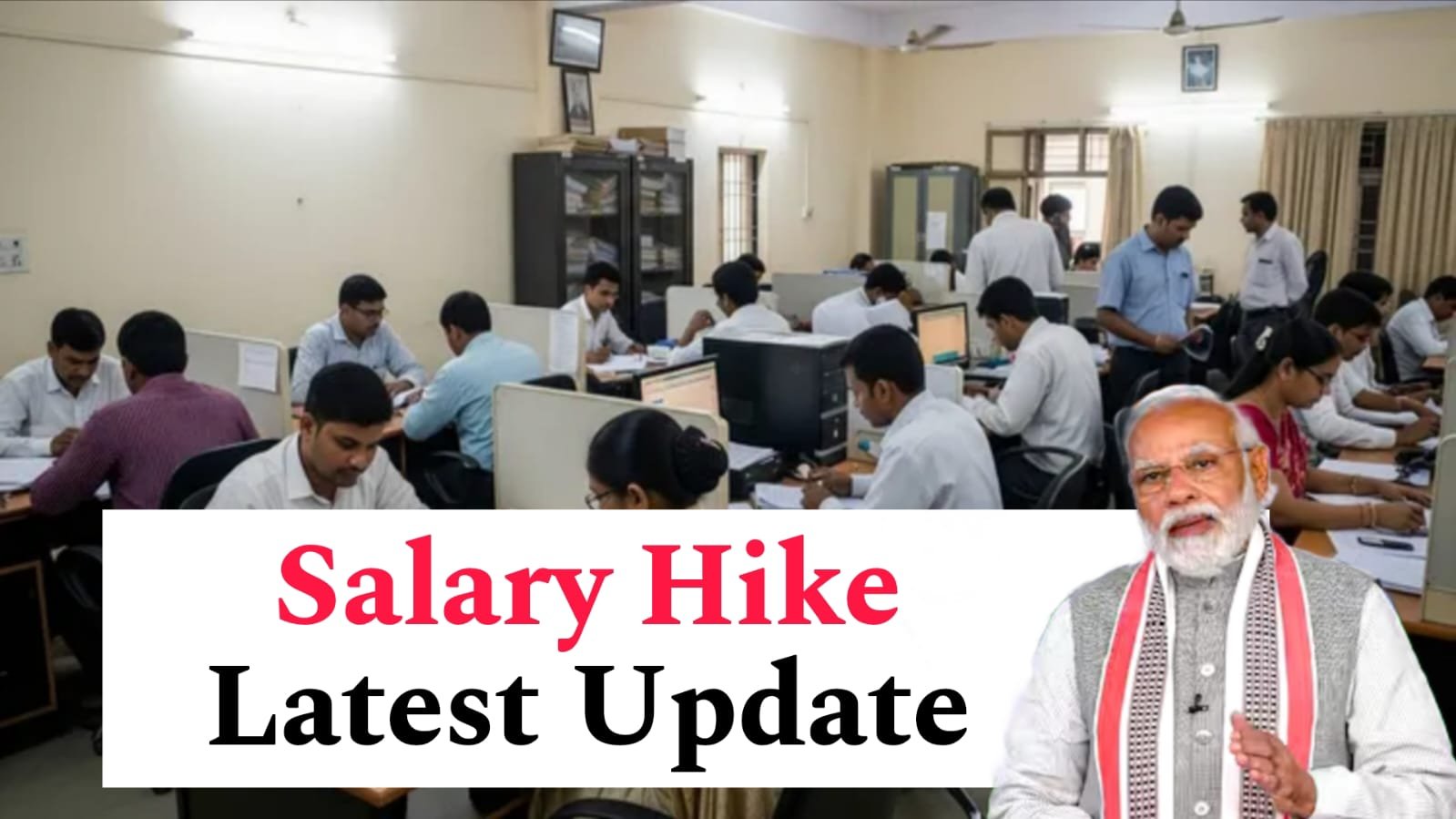Salary Hike : In what comes as a major disappointment to over 1.2 crore central government employees and pensioners, the much-anticipated implementation of the 8th Pay Commission seems increasingly unlikely to happen anytime soon. While employees were hopeful for a timely announcement, recent reports indicate that the salary hike expected through the new pay commission might be significantly delayed or even uncertain at this point. Let’s take a detailed look at the current situation, government’s progress, and employee demands.
Salary Hike : Approval Without Action: The Current Status of the 8th Pay Commission
As per the latest developments, the central government officially approved the 8th Pay Commission on January 16, 2025. However, the formal structure of the commission is yet to be established. No appointments have been made for the chairperson or members of the commission, and the official Terms of Reference (ToR) are still being finalized.
Over 12 million (1.2 crore) central government employees and pensioners are eagerly waiting for clarity on the commission’s scope, mandate, and implementation schedule. Without a clear roadmap or appointments in place, it is becoming increasingly unlikely that the recommendations of the 8th Pay Commission will be implemented from the expected date of January 1, 2026.
Salary Hike : Why January 2026 Implementation Seems Unlikely
The Seventh Pay Commission’s tenure is set to end on December 31, 2025, which logically sets January 1, 2026, as the most suitable date for the new pay structure to come into effect. However, the absence of any formal movement on the 8th Pay Commission’s formation makes this timeline highly unrealistic.
Based on the experience of previous pay commissions, it generally takes 2 to 2.5 years from formation to final implementation. Given that we are already in September 2025 and no members have been appointed yet, the report, recommendations, cabinet approval, and subsequent implementation could take several years.
Salary Hike : Looking Back: Historical Timeline of Previous Pay Commissions
To understand the pattern better, let’s look at how long previous pay commissions took:
-
6th Pay Commission:
-
Formed: October 2006
-
Report Submitted: March 2008
-
Cabinet Approval: August 2008
-
Effective From: January 1, 2006 (retrospective implementation)
-
-
7th Pay Commission:
-
Formed: February 2014
-
Report Submitted: November 2015
-
Cabinet Approval: June 2016
-
Effective From: January 1, 2016 (retrospective implementation)
-
In both instances, although the implementation was delayed, the government applied the changes retrospectively from the intended effective date and cleared the arrears in phases.
Salary Hike : Will the 8th Pay Commission Be Implemented on Time?
So far, there is no clarity on when the 8th Pay Commission will actually be formed. While a deputation circular for 35 staff positions has been issued by the government, there is no announcement of who will lead the commission or who the members will be.
Reports suggest the government is still working on finalizing the Terms of Reference (ToR). If the commission is formed towards the end of 2025 or in early 2026, the report may not be ready until 2027 or even 2028. Furthermore, implementing the recommendations may take another 6 to 8 months, pushing the salary hike much further than anticipated.
This means that even if everything goes smoothly from now, the actual implementation of new salaries could be delayed until 2028. However, if the government wishes, it can still make the changes effective from January 1, 2026, and release the arrears in phases, similar to previous instances. But such a move would depend heavily on political will and the country’s fiscal position at that time.
What Are Employees Demanding from the 8th Pay Commission?
Various government employee federations have already submitted several key demands to be considered under the 8th Pay Commission:
-
Minimum Wage Revision based on a five-member family standard.
-
Merger of Pay Levels to streamline pay structures and address anomalies.
-
Revision of Pension Formula every 5 years to ensure parity with rising costs.
-
Restoration of Commuted Pension after 12 years of retirement.
-
Merger of 50% Dearness Allowance (DA) with the basic pay to simplify increments and allowances.
These demands reflect long-standing issues that many employees and pensioners feel were inadequately addressed in the previous pay commission cycles.
How Much Could Salaries Increase? Understanding Fitment Factor Speculation
Amid the ongoing uncertainty, there is heavy speculation surrounding the potential fitment factor — a key multiplier used to revise the basic pay structure. Currently, the 7th Pay Commission used a fitment factor of 2.57x.
If the 8th Pay Commission proposes a fitment factor in the range of 1.92x to 2.86x, then the basic salary of Rs. 18,000 (Level 1) could rise significantly, potentially going up to Rs. 51,000 per month.
Similarly, pensioners would benefit not just from revised pension formulas but also from an increase in Dearness Relief (DR) and additional benefits under the New Pension Scheme (NPS).
However, all such projections remain speculative until the commission is formed and the ToR is finalized.
Conclusion: What Lies Ahead?
As of now, the implementation of the 8th Pay Commission from January 2026 looks increasingly doubtful, given the delays in formal constitution and appointments. Although the government has signaled intent, the absence of concrete steps leaves employees and pensioners in a state of uncertainty.
It is now evident that unless the government expedites the formation process, the report and its implementation may get pushed to 2027 or 2028. While retrospective implementation remains a possibility, it is not guaranteed and will depend on political and economic factors.
Government employees, meanwhile, are continuing their demands for timely reform, clarity, and transparency in the process. Until then, they can only wait for further announcements regarding the formation and functioning of the 8th Pay Commission.



